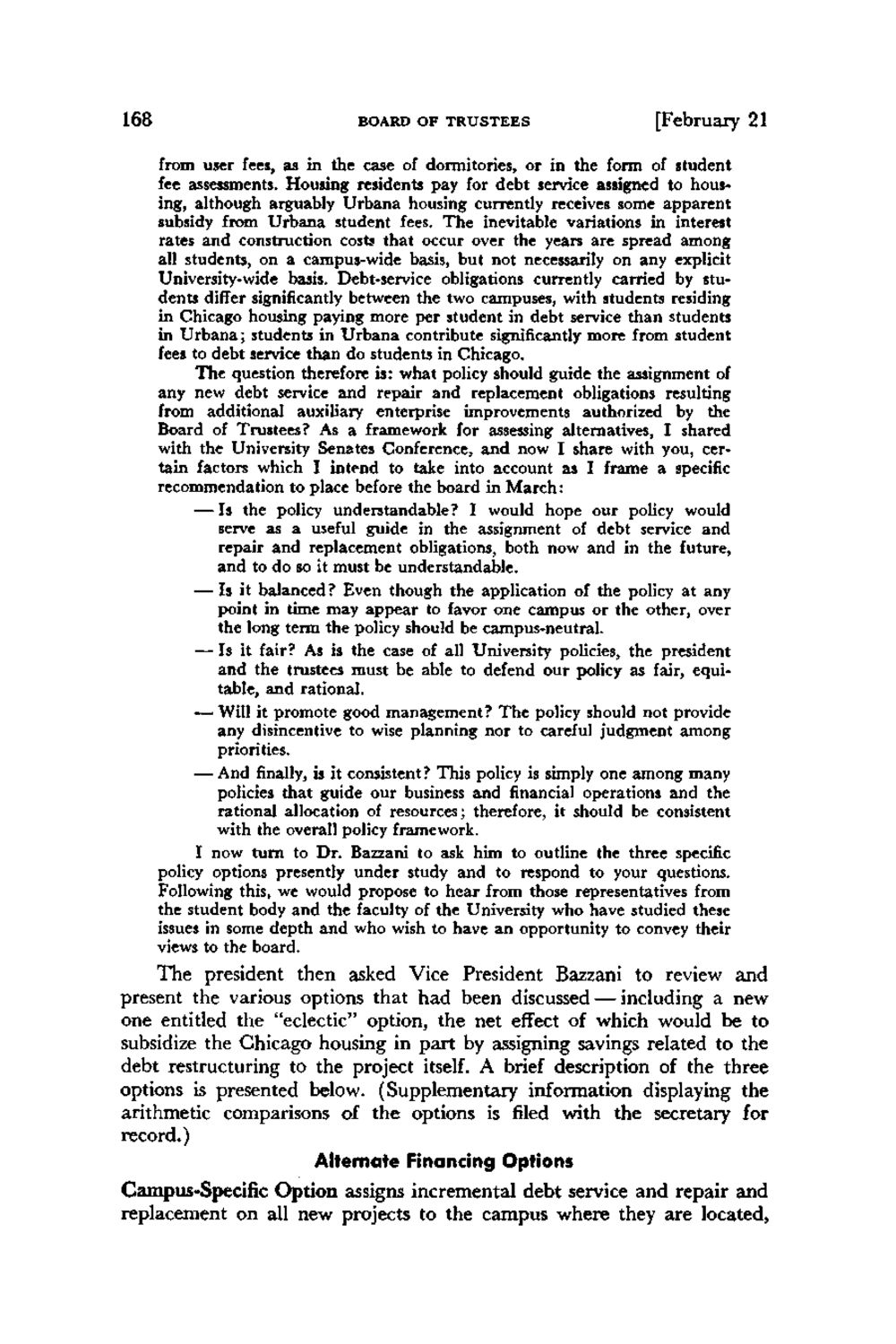| |
| |
Caption: Board of Trustees Minutes - 1986
This is a reduced-resolution page image for fast online browsing.

EXTRACTED TEXT FROM PAGE:
168 BOARD OF TRUSTEES [February 21 from user fees, as in the case of dormitories, or in the form of student fee assessments. Housing residents pay for debt service assigned to housing, although arguably Urbana housing currently receives some apparent subsidy from Urbana student fees. The inevitable variations in interest rates and construction costs that occur over the years are spread among all students, on a campus-wide basis, but not necessarily on any explicit University-wide basis. Debt-service obligations currently carried by students differ significantly between the two campuses, with students residing in Chicago housing paying more per student in debt service than students in Urbana; students in Urbana contribute significantly more from student fees to debt service than do students in Chicago. The question therefore is: what policy should guide the assignment of any new debt service and repair and replacement obligations resulting from additional auxiliary enterprise improvements authorized by the Board of Trustees? As a framework for assessing alternatives, I shared with the University Senates Conference, and now I share with you, certain factors which I intend to take into account as I frame a specific recommendation to place before the board in March: — Is the policy understandable ? I would hope our policy would serve as a useful guide in the assignment of debt service and repair and replacement obligations, both now and in the future, and to do so it must be understandable. — Is it balanced ? Even though the application of the policy at any point in time may appear to favor one campus or the other, over the long term the policy should be campus-neutral. — Is it fair? As is the case of all University policies, the president and the trustees must be able to defend our policy as fair, equitable, and rational. — Will it promote good management ? The policy should not provide any disincentive to wise planning nor to careful judgment among priorities. — And finally, is it consistent? This policy is simply one among many policies that guide our business and financial operations and the rational allocation of resources; therefore, it should be consistent with the overall policy framework. I now turn to Dr. Bazzani to ask him to outline the three specific policy options presently under study and to respond to your questions. Following this, we would propose to hear from those representatives from the student body and the faculty of the University who have studied these issues in some depth and who wish to have an opportunity to convey their views to the board. The president then asked Vice President Bazzani to review and present the various options that had been discussed — including a new one entitled the "eclectic" option, the net effect of which would be to subsidize the Chicago housing in part by assigning savings related to the debt restructuring to the project itself. A brief description of the three options is presented below. (Supplementary information displaying the arithmetic comparisons of the options is filed with the secretary for record.) Alternate Financing Options Campus-Specific Option assigns incremental debt service and repair and replacement on all new projects to the campus where they are located,
| |